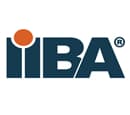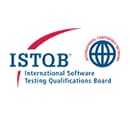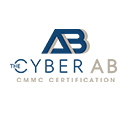FINRA Series-63 Practice Test Questions Answers
Exam Code: Series-63
(Updated 251 Q&As with Explanation)
Exam Name: Uniform Securities State Law Examination
Last Update: 28-Jan-2026
Demo:
Download Demo
Questions Include:
Reliable Solution To Pass Series-63 Uniform Securities State Law Certification Test
Our easy to learn Series-63 Uniform Securities State Law Examination questions and answers will prove the best help for every candidate of FINRA Series-63 exam and will award a 100% guaranteed success!
Why Series-63 Candidates Put Solution2Pass First?
Solution2Pass is ranked amongst the top Series-63 study material providers for almost all popular Uniform Securities State Law certification tests. Our prime concern is our clients’ satisfaction and our growing clientele is the best evidence on our commitment. You never feel frustrated preparing with Solution2Pass’s Uniform Securities State Law Examination guide and Series-63 dumps. Choose what best fits with needs. We assure you of an exceptional Series-63 Uniform Securities State Law Examination study experience that you ever desired.
A Guaranteed FINRA Series-63 Practice Test Exam PDF
Keeping in view the time constraints of the IT professionals, our experts have devised a set of immensely useful FINRA Series-63 braindumps that are packed with the vitally important information. These FINRA Series-63 dumps are formatted in easy Series-63 questions and answers in simple English so that all candidates are equally benefited with them. They won’t take much time to grasp all the FINRA Series-63 questions and you will learn all the important portions of the Series-63 Uniform Securities State Law Examination syllabus.
Most Reliable FINRA Series-63 Passing Test Questions Answers
A free content may be an attraction for most of you but usually such offers are just to attract people to clicking pages instead of getting something worthwhile. You need not surfing for online courses free or otherwise to equip yourself to pass Series-63 exam and waste your time and money. We offer you the most reliable FINRA Series-63 content in an affordable price with 100% FINRA Series-63 passing guarantee. You can take back your money if our product does not help you in gaining an outstanding Series-63 Uniform Securities State Law Examination exam success. Moreover, the registered clients can enjoy special discount code for buying our products.
FINRA Series-63 Uniform Securities State Law Practice Exam Questions and Answers
For getting a command on the real FINRA Series-63 exam format, you can try our Series-63 exam testing engine and solve as many Series-63 practice questions and answers as you can. These FINRA Series-63 practice exams will enhance your examination ability and will impart you confidence to answer all queries in the FINRA Series-63 Uniform Securities State Law Examination actual test. They are also helpful in revising your learning and consolidate it as well. Our Uniform Securities State Law Examination tests are more useful than the VCE files offered by various vendors. The reason is that most of such files are difficult to understand by the non-native candidates. Secondly, they are far more expensive than the content offered by us. Read the reviews of our worthy clients and know how wonderful our Uniform Securities State Law Examination dumps, Series-63 study guide and Series-63 Uniform Securities State Law Examination practice exams proved helpful for them in passing Series-63 exam.














